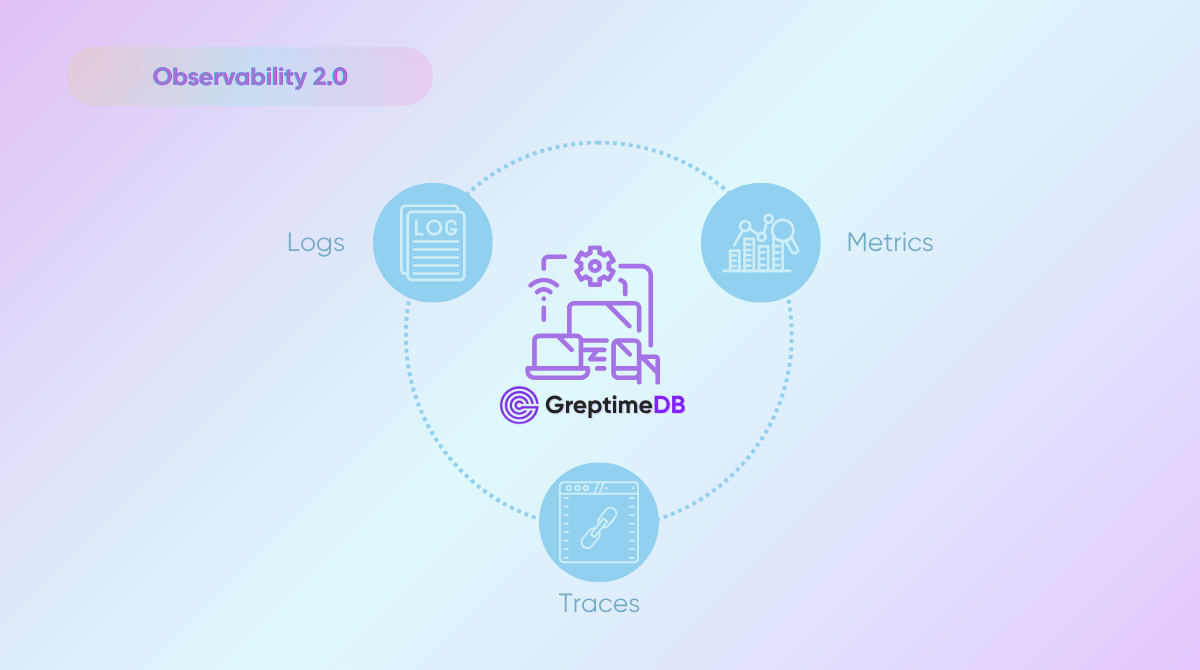
The Log Analysis Challenge
Every application generates logs. Web servers, databases, microservices - they all leave digital breadcrumbs. But when things go wrong, finding relevant information feels like searching for a needle in a haystack.
Traditional log analysis relies on basic pattern matching. That works for simple cases, but modern applications generate complex, semi-structured logs that need smarter search capabilities.
GreptimeDB's Full-Text Search Evolution
Version 0.14 brought significant improvements to full-text indexing. Now you have two backend options optimized for different use cases:
Bloom Filter Backend
- Efficient filtering for general log search
- Low storage overhead (1GB index for 10GB data)
- Stable performance across query patterns
- Best for: Regular log analysis workflows
Tantivy Backend
- Inverted indexes for high-selectivity queries
- 5x faster for unique identifier searches
- Higher storage costs (index size ~= data size)
- Best for: TraceID and specific value lookups
The New matches_term Function
Exact phrase matching becomes crucial for log analysis. The new @@ operator and matches_term function enable:
SELECT * FROM logs WHERE message @@ 'connection timeout';
-- Or using the full function
SELECT * FROM logs WHERE matches_term(message, 'error');This case-sensitive matching respects word boundaries, making it perfect for structured log parsing.
Performance Comparison Insights
Our benchmarks reveal interesting patterns:
| Query Type | High Selectivity | Low Selectivity |
|---|---|---|
| Bloom | 1x (baseline) | 1x (baseline) |
| Tantivy | 5x faster | 5x slower |
| Like Query | 50x slower | 1x |
Choose your backend based on actual query patterns, not just peak performance numbers.
Storage vs. Performance Trade-offs
Full-text indexing isn't free. Consider these factors:
- Index storage requirements
- Write performance impact
- Query latency expectations
- Cost sensitivity for your deployment
GreptimeDB's flexible approach lets you optimize per table based on specific requirements.
Best Practices for Log Analytics
Effective log search implementation:
- Structure logs when possible for better compression
- Use appropriate index backends for your query patterns
- Monitor index size growth
- Consider retention policies for historical data
Start with GreptimeDB's log analytics features to streamline your troubleshooting workflows.
About Greptime
GreptimeDB is an open-source, cloud-native database purpose-built for real-time observability. Built in Rust and optimized for cloud-native environments, it provides unified storage and processing for metrics, logs, and traces—delivering sub-second insights from edge to cloud —at any scale.
GreptimeDB OSS – The open-sourced database for small to medium-scale observability and IoT use cases, ideal for personal projects or dev/test environments.
GreptimeDB Enterprise – A robust observability database with enhanced security, high availability, and enterprise-grade support.
GreptimeCloud – A fully managed, serverless DBaaS with elastic scaling and zero operational overhead. Built for teams that need speed, flexibility, and ease of use out of the box.
🚀 We’re open to contributors—get started with issues labeled good first issue and connect with our community.
💬 Slack | 🐦 Twitter | 💼 LinkedIn
